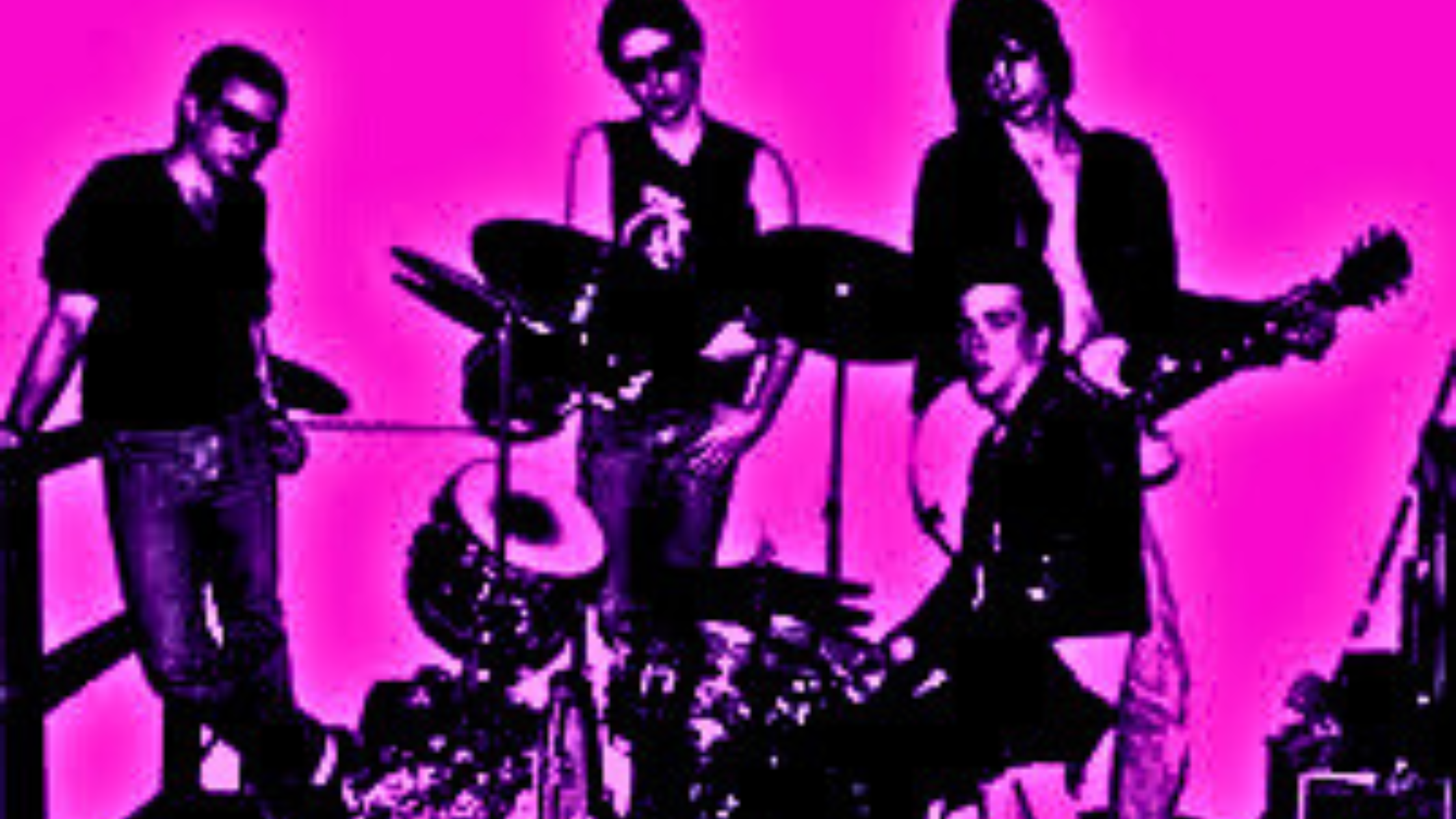King Snake Roost: From Barbarism to Christian Manhood (1987)
Mutating from the drug-addled ashes of Grong Grong, Sydney’s King Snake Roost breached earholes with a perverse blend of acid-fried jazz, punk, and mind-altering barbarism.
A maniacal skeleton adorns his throne, golden crown encrusting a demented head. Arms, weaponized and crucifixed, shadow his regal threads, an open cloak seaming into gothic armholes. A nest of hungry beaks bleat at the foot of the demonic king, obscuring a presumably impressive appendage. To the king’s right is a golden snake — phallic, glorious, erect. To his left, a sinister rooster perches with cocksure manifest, suggesting a cautious mindset be deployed upon entrance of this abysmal fortress. For the green-gilled, the artwork is a biblical mayday. For the King Snake Roost aficionado, it’s par for the course.
Led by innovating guitarist Charlie Tolnay, King Snake Roost menaced Sydney’s pubs, joining Lubricated Goat, The Splatterheads, and Nunbait on the notorious underground circuit. Poverty and inner-city grit dictated the mantra; angular, offensive riffs inked the mission statement.
1987, and King Snake Roost release debut LP From Barbarism to Christian Manhood. This is the switchblade experience virgin ears must endure if they’re to transition to a dissonant paradise.
To understand King Snake Roost, we must journey to a mystical land of yore, where churches rule the domain, foul water pummels the uvula, and the unemployed dead turn up in barrels of acid. Adelaide, home of Grong Grong, a calamitous combo who soundtracked the poverty-stricken northern suburbs for a decade.
Bubbling from a government-subsidized welfare kingdom, two brothers of Hungarian immigrants accompanied two Greek friends in forming one of the most incendiary musical acts in Australia’s history. Charlie Tolnay, Michael Farkas, David Taskas, and George Klestinis, dubbed the godfathers of grunge by their Seattle brethren, unwittingly pioneered a genre that would one day take the corporate rock world by storm.
Whittling their act to a dystopian pantomime, Grong Grong blew audiences away, as singer Michael Farkas convulsed on stage in a gimp mask, while half-brother Tolnay menaced his guitar from the back end of a dying cigarette.
“I lay awake for two nights after seeing Grong Grong, wondering if I actually saw what I saw.”
In 1987, with Farkas hospitalized due to a heroin-induced coma, Grong Grong disbanded. But in crisis comes opportunity, and before long, a new Tolnay project called King Snake Roost rose from the ashes.
Migrating from sleepy Adelaide to the Sydney hustle proved a master stroke as King Snake Roost breached the colon of the city’s Stooges-obsessed music scene. The scuzzy quartet blew a hole into the ceiling of the local scene, and were promptly signed to Bruce Griffiths’ Aberrant Records label. Following From Barbarism to Christian Manhood, a split 7” with feedtime was released, capturing the label-mates as they covered each other’s material. The result is a breathtaking clatter of contradiction, with calamitous screechiness juxtaposing a melodic bliss. In 1988, King Snake Roost released the perv-o-jazz interlope of Things That Play Themselves. With a bend of sophistication, the album features Tolnay’s hacksaw guitar sanded to a harsh art. And the brass section? Oh, the brass section.
The release of 1990’s Ground Into the Dirt, plus the inclusion of My Zippo on Dope, Guns ‘n’ Fucking in the Streets, saw Jello Biafra’s attention captured once more. Inviting Tolnay to collaborate on side project Tumor Circus, the anal probe of Take Me Back Or I’ll Drown Our Dog is released.
Sadly, it is here where King Snake Roost departs this mortal coil. Over the ensuing decades, Charlie Tolnay and Michael Farkas moved back to Adelaide’s northern suburbs, living together with their cats, and spending time mulling over the legacy of lifelong drug dependence.
R.I.P. to both brothers.
© Dot Dash Press








